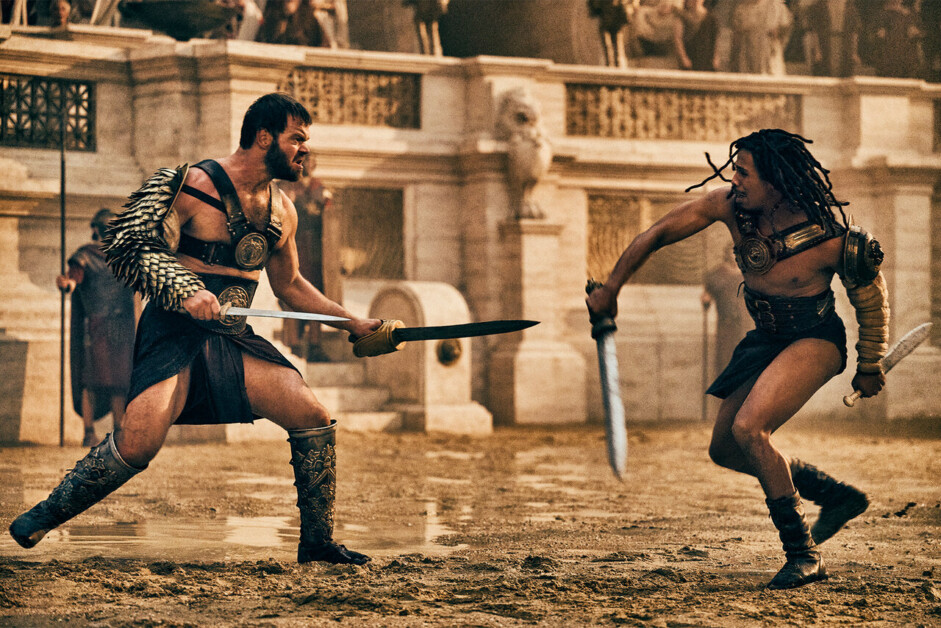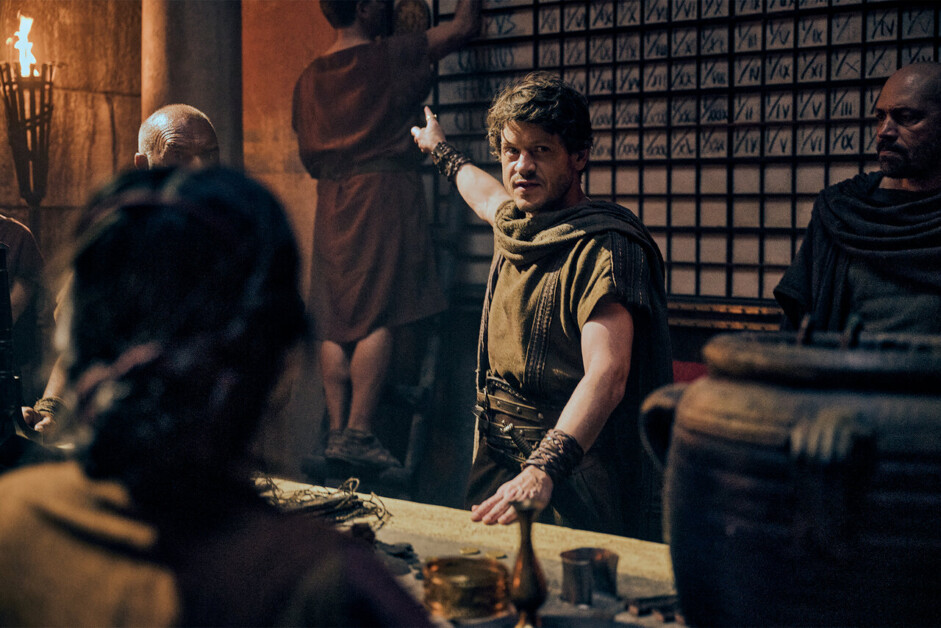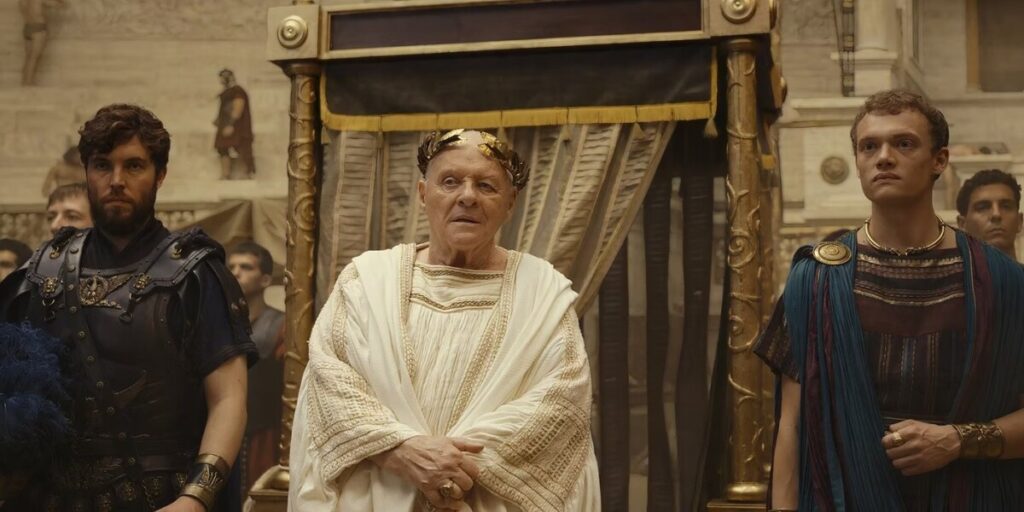Roland Emmerich is a man with no need for an introduction. For better or worse, he’s a director whose name immediately sets your expectations for a project. You’ll go in expecting a heavy focus on visuals and aesthetics; the story takes a backseat to the style. Sometimes it works, sometimes it doesn’t, and some stuff gets stuck in that in-between where folks have to fight to defend their position one way or the other. Those About To Die falls in that middle ground.
It’s no man’s land. Emmerich, of course, really goes all out on the visual front. The show is clearly quite expensive, and the team behind it goes to stringently detailed lengths to push the Roman setting in both physical sets and vocalized references. The show relies on suggestive natural light to illuminate scenes; torches flare up in hallways, and the sun beams down over mobs of citizens hurling stones at their superiors. Aesthetically, as you’d expect, this is compelling.
Now, there’s still the occasional CG shot that doesn’t work, especially during action sequences and moments of establishment. Composition can get a little weird at times, too, with Emmerich erring to the side of visceral closeness even when it doesn’t necessarily apply. But on the whole, Those About To Die looks striking and works to make a name for itself. But you know what comes next.

The writing leaves a lot to be desired. Narratively, it’s difficult to track at just about every interval, but at the center of the story is a Roman entertainment industry (horse racing, gladiator battles) that serves as a blinder on a growingly restless population of people, hiding the crime and struggles for power behind the scenes.
That sounds like it should be complicated, and it is; to that extent, the show sensibly involves a lot of different people of many different beliefs and creeds. Emmerich builds a believable societal web on the surface, but when you actually start to pull the strings, the whole thing unravels.
Characters are little more than their motivations, and said motivations are little more than the locations they’re attached to. People fall into the sprawling Roman setting that, while an impressive visual feat, serves as a conglomerate for characters to get lost in. You’re thrown around nearly a dozen locations in the first episode alone, and all of them are related to slight scenic changes and a split-second title card. It’s just too much.
That’s made worse by the nature of the character writing, too. Emmerich isn’t pushing the envelope in regards to invention or tropes; really, he’s not even nudging it. He’s got the whole thing neatly packed up in a way you’ve seen it done a million times before. You could take it to a post office and ship it out with no special packaging fee. It’s just plain.

In simpler terms, nothing about this lineup of people is unique to, or takes advantage of, the compelling timeframe in which they’re put. The crowns, sandals, and togas don’t count.
Those About To Die isn’t a disaster or anything. There’s fun to be had in Emmerich’s flare for period-piece style and progressions. It’s just that there’s much more that could be done with the show beyond the flashy technicalities, and as is often the case with Emmerich, he doesn’t explore that route. We end up with an eye-popping frenzy with very little to offer beyond the boiling Roman conflicts that tease a nonexistent greater narrative.
Do check this one out for yourself, though. There isn’t anything offensively bad that should throw all viewers off, and if you’ve enjoyed Emmerich’s past works, all of this may sound like good news to you. If anything, the man is direly consistent.
Those About To Die is currently available to stream on Peacock.
Those About To Die isn’t a disaster or anything. There’s fun to be had in Emmerich’s flare for period-piece style and progressions. It’s just that there’s much more that could be done with the show beyond the flashy technicalities, and as is often the case with Emmerich, he doesn’t explore that route. We end up with an eye-popping frenzy with very little to offer beyond the boiling Roman conflicts that tease a nonexistent greater narrative.
-
GVN Rating 5
-
User Ratings (1 Votes)
7.7







